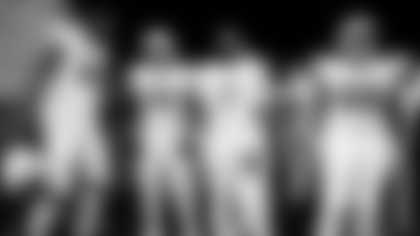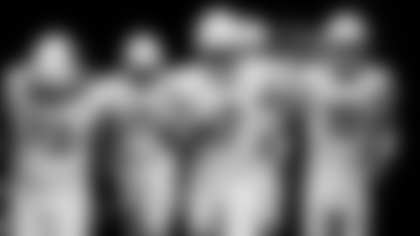Justin Pugh, who grew up in an area of New York without a lot of Black people, has had his perspective about social justice and the treatment of Blacks change since he got into the NFL. Tuesday -- saying he thought the Cardinals "handled it great" when they decided as a team to remain in the locker room for Sunday's national anthem in San Francisco -- the offensive lineman gave an impassioned explanation about his changing views since Colin Kaepernick first decided to kneel back in 2016.
"There are so many things that are going on in this country, and no matter what you say, someone is always going to have a negative thing to say back to it," Pugh said. "If you're not in this building and you don't hear some of the players and hear some of the stories that I've heard ... because I was one of the guys, when Colin Kaepernick first took a knee, I had something to say about it and I was going to stand for the anthem and I felt strongly about that. Then I sat down and listened.
"I think as a country we listen with the intent to respond and not with the intent to understand where people are coming from. If we could just have some empathy and listen to where our teammates or co-workers are coming from, we could really make a stand and really make a change."
Pugh said his thoughts on the Kaepernick situation first started to change when he was playing for the Giants, when fellow offensive lineman D.J. Fluker explained to him what he went through as a Black man. That thought process was completed this offseason, when Pugh trained at former NFL player LeCharles Bentley's gym, when Bentley, D.J. Humphries and Kelvin Beachum -- all Black men -- "really opened my eyes" with some of the stories they told Pugh.
"As a white player on this team, I have to support the guys I play next to," Pugh said. "Me and D.J. Humphries have had conversations throughout this entire offseason. You get emotional about because people still aren't realizing what we are doing -- it's not about the flag, it's not about disrespecting the flag. My brother is in the military, I feel the most respect toward our military, our police officers. But there is an issue in our country right now that we are not addressing, that we are trying to sweep under the rug. Until that changes, until my teammates feel safe going out into the community, we can't stop having this conversation."
Pugh emphasized as a white man, he needs to have the "awkward conversations" with those that don't understand, with people he is friends with or from his hometown, because that's where the change can happen.
"It's disappointing as a country we are still not able to understand what we are talking about," Pugh said.
















